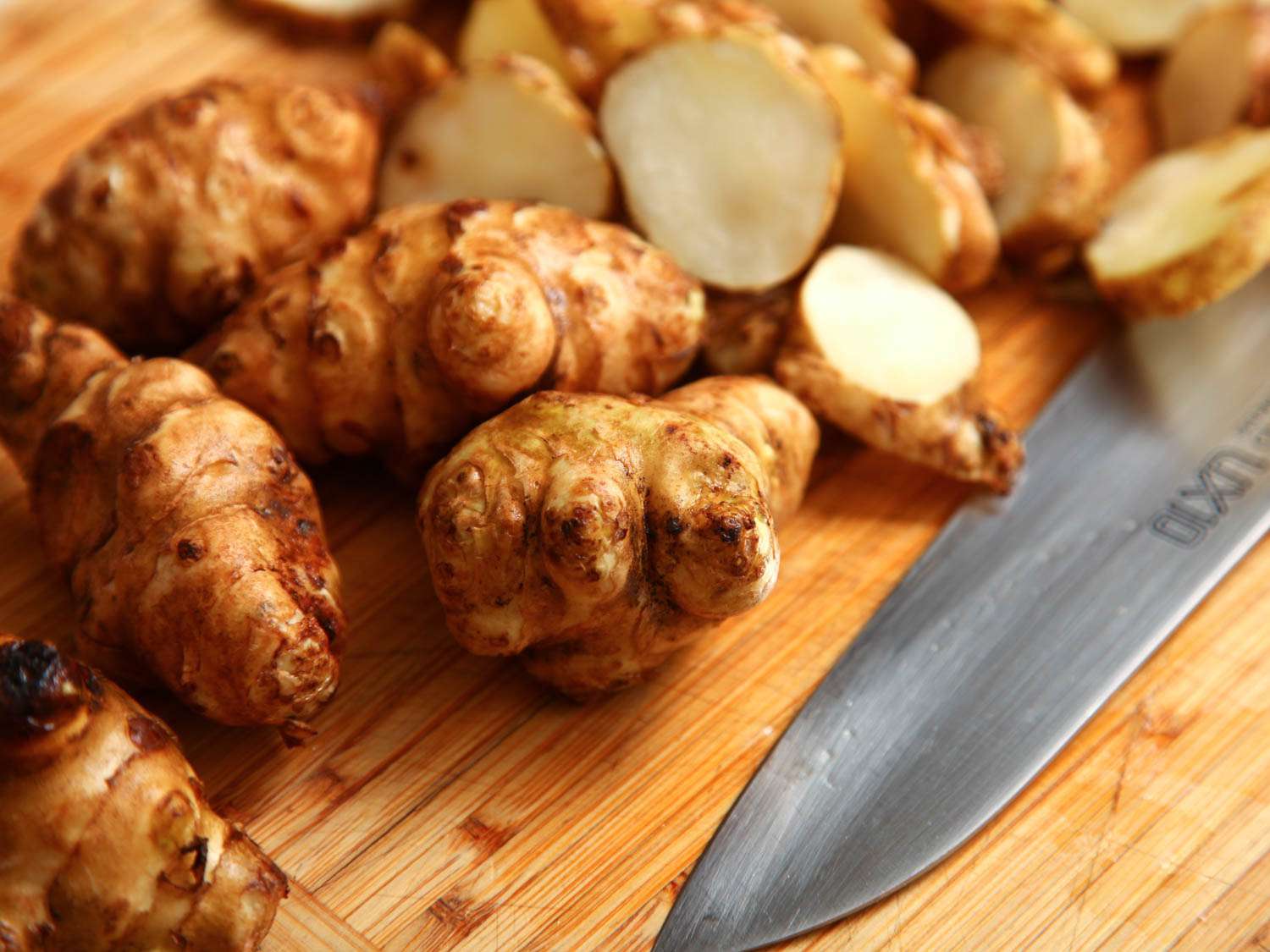
Sunchokes, also known as Jerusalem artichokes, are a unique and versatile root vegetable. Despite their name, they have no relation to Jerusalem or artichokes. Instead, these tubers come from a type of sunflower native to North America. Sunchokes boast a nutty, slightly sweet flavor and can be enjoyed raw, roasted, or even mashed. They are packed with nutrients like iron, potassium, and fiber, making them a healthy addition to any meal. Curious about this intriguing vegetable? Here are 20 fascinating facts about sunchokes that will make you want to add them to your grocery list.
Key Takeaways:
- Sunchokes, also known as Jerusalem artichokes, are nutritious tubers with a nutty flavor. They can boost energy, aid digestion, and be used in various dishes.
- Sunchokes are easy to grow, resilient, and can be harvested in late fall. Despite their name, they are not related to artichokes and were once considered a weed.
What is a Sunchoke?
Sunchokes, also known as Jerusalem artichokes, are tubers that come from a type of sunflower. Despite their name, they have no relation to Jerusalem or artichokes. These knobby, brown roots are packed with nutrients and have a unique, nutty flavor.
- Sunchokes are native to North America, specifically the central United States.
- They were cultivated by Native Americans long before European settlers arrived.
- The name "Jerusalem artichoke" is believed to be a corruption of the Italian word for sunflower, "girasole."
Nutritional Benefits of Sunchokes
Sunchokes are not only tasty but also incredibly nutritious. They offer a range of health benefits that make them a great addition to any diet.
- High in iron, sunchokes help boost energy levels and improve blood health.
- They are a good source of potassium, which supports heart health and muscle function.
- Rich in inulin, a type of fiber, they can aid in digestion and promote gut health.
- Sunchokes are low in calories, making them a weight-friendly food option.
- They contain antioxidants that help fight off free radicals and reduce inflammation.
Culinary Uses of Sunchokes
Sunchokes can be used in a variety of dishes, adding a unique flavor and texture. They are versatile and can be prepared in many ways.
- They can be eaten raw, sliced thinly in salads for a crunchy texture.
- Roasting sunchokes brings out their natural sweetness and nutty flavor.
- They can be mashed like potatoes for a creamy side dish.
- Sunchokes can be pickled, adding a tangy twist to their taste.
- They are often used in soups and stews, providing a hearty addition.
Growing and Harvesting Sunchokes
Growing sunchokes is relatively easy, and they can thrive in various conditions. They are a hardy plant that requires minimal care.
- Sunchokes can grow in poor soil, making them a resilient crop.
- They are perennial plants, meaning they come back year after year.
- Harvesting typically occurs in late fall, after the first frost.
- The tubers can be left in the ground and dug up as needed throughout the winter.
Fun and Interesting Facts About Sunchokes
Sunchokes have some quirky and fascinating aspects that make them even more interesting.
Final Thoughts on Sunchokes
Sunchokes, also known as Jerusalem artichokes, are a fascinating root vegetable with a rich history and numerous health benefits. Packed with fiber, vitamins, and minerals, they can boost your diet in unexpected ways. Their nutty, slightly sweet flavor makes them versatile in the kitchen, whether roasted, mashed, or even raw in salads.
Despite their name, sunchokes aren't related to artichokes or Jerusalem. They're actually a type of sunflower native to North America. This hardy plant can grow in various climates, making it a sustainable crop choice.
However, be mindful of their high inulin content, which can cause digestive issues for some people. Start with small portions to see how your body reacts.
Incorporating sunchokes into your meals can add variety and nutrition. Give them a try and enjoy the unique taste and benefits they offer.
Frequently Asked Questions
Was this page helpful?
Our commitment to delivering trustworthy and engaging content is at the heart of what we do. Each fact on our site is contributed by real users like you, bringing a wealth of diverse insights and information. To ensure the highest standards of accuracy and reliability, our dedicated editors meticulously review each submission. This process guarantees that the facts we share are not only fascinating but also credible. Trust in our commitment to quality and authenticity as you explore and learn with us.


